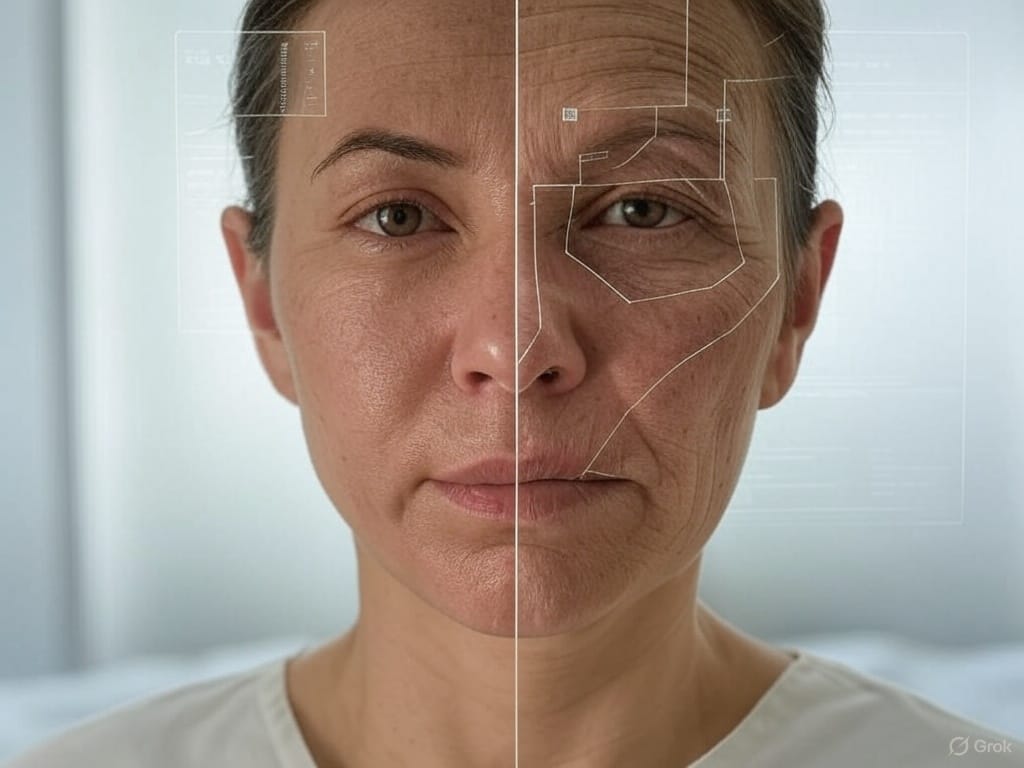- Shortlysts
- Posts
- This AI Tool Reads Your Face And Predicts If You’ll Beat Cancer
This AI Tool Reads Your Face And Predicts If You’ll Beat Cancer
An AI tool can analyze your face to estimate biological age and predict cancer survival more accurately than doctors in some cases.

What Happened
In a colossal leap for medical tech, researchers at Mass General Brigham have developed a tool that uses artificial intelligence to predict your biological age and estimate your cancer survival odds. The kicker? The only data it needs is a photo of your face.
The tool, called FaceAge, was trained by using nearly 59,000 images of healthy individuals to learn subtle age markers in humans. After training, the tool was tested on over 6,000 volunteer cancer patients. This helped assess how facial cues correlate with health outcomes accurately.
FaceAge doesn’t just estimate how old you look. It calculates a biological age, which can be older or younger than your actual age depending on your health.
The findings were telling. Patients whose faces suggested they were biologically older than their chronological age had worse survival outcomes. In pacifying care settings, the AI outperformed clinicians at predicting whether a patient would survive six months. It improved prediction accuracy from 61% (doctors alone) to 80% when FaceAge was used alongside human judgment.
Why It Matters
Although still new, this breakthrough has the potential to transform how doctors assess patient health. That’s particularly true for complex decisions regarding cancer care.
Doctors often rely on subjective judgments when evaluating a patient’s overall health, especially in late-stage or terminal cases. Biological age, how well or poorly your body is aging, can tell a more accurate story than the number on your driver’s license. Until now, measuring this has been difficult and inconsistent.
FaceAge has introduced a fast, non-invasive way to estimate a person's biological age using something most people already have: a smartphone. In end-of-life care, accuracy in predicting survival can affect everything from treatment decisions to hospice planning to mental preparation. By improving this accuracy, FaceAge could help doctors make better decisions and families plan more effectively.
It also offers a fresh lens on aging itself. Two people might both be 60, but if one looks 70 biologically and the other looks 50, their health outlooks could be very different. FaceAge captures that gap with precision.
How It Affects You
If your biological age is older than your actual age, you may be at an increased risk for serious illness, even if you feel fine. In the future, tools like FaceAge could become part of regular checkups, giving early warnings about declining health before symptoms show up.
It also means that important medical decisions, particularly around cancer treatment or other end-of-life care, will shift toward more data-driven analysis and treatments. This could reduce errors and biases in treatment.
But there are trade-offs. The idea of AI judging your health based on a selfie raises concerns over ethics and deliberate misuse by insurers and employers. Also, how accurate will it be for people of different races, ages, or backgrounds?
For now, FaceAge is still in the research stage. But the data would seem to suggest that your face may hold vital clues to how long and how well you’ll live, and AI is learning how to read them.